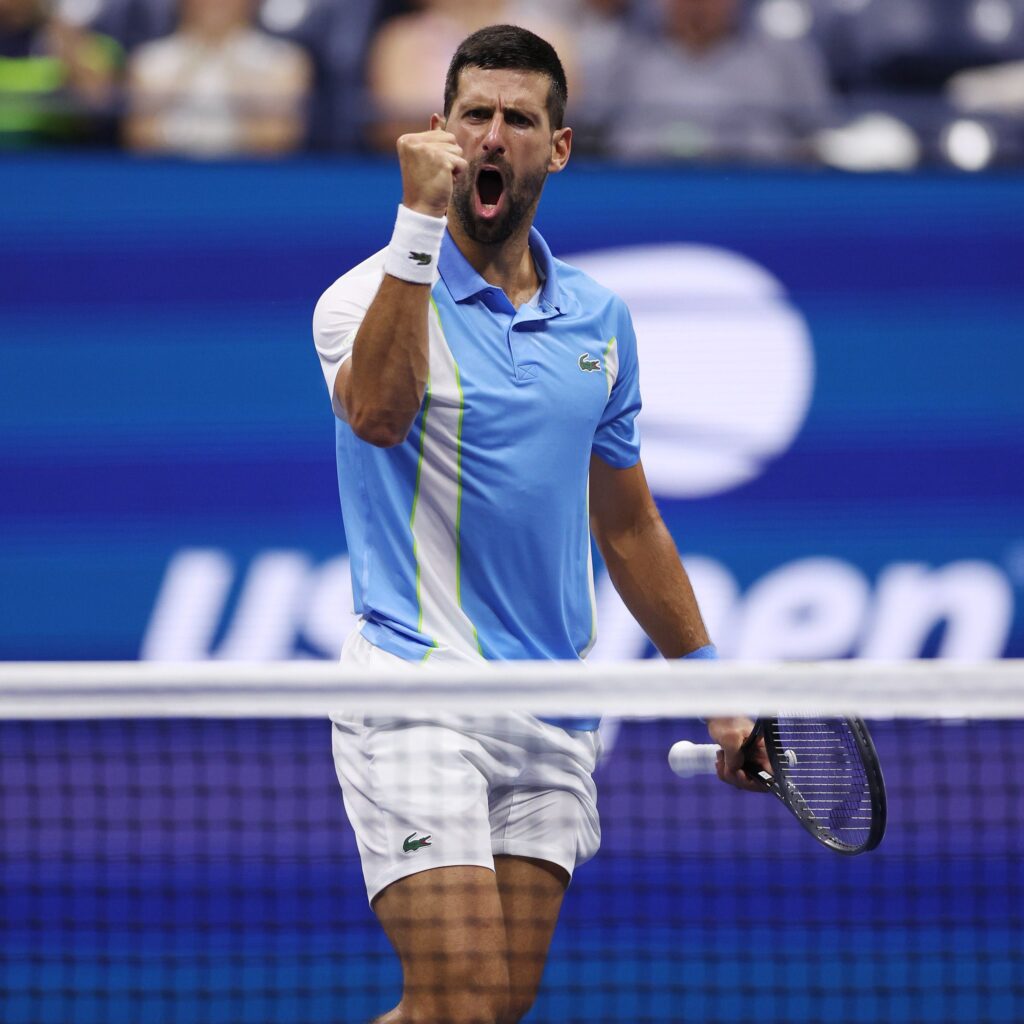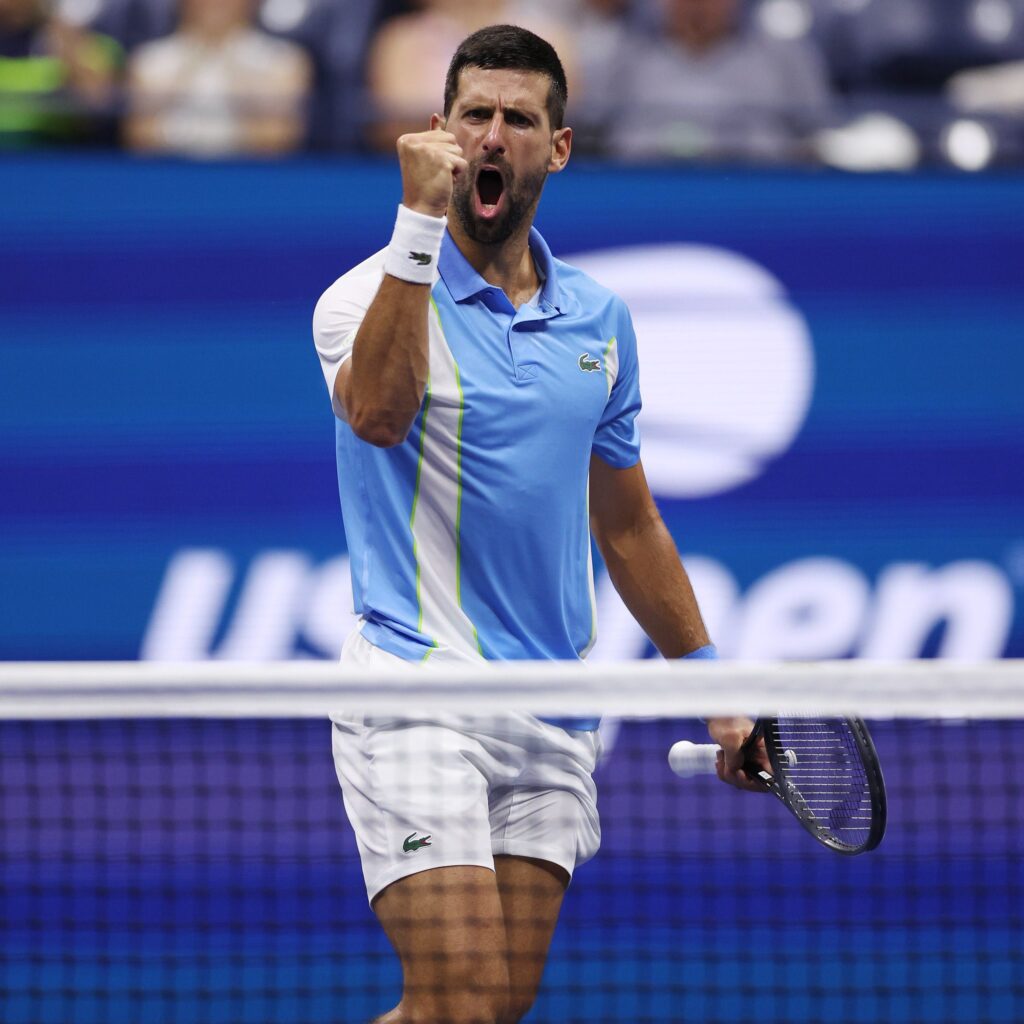
It was in 2007, the year a 20-year-old Novak Djokovic reached his first Grand Slam final, that the Coen Brothers made No Country for Old Men, with the rugged Javier Bardem in the assassin’s role. Djokovic lost to Roger Federer in straight sets in that US Open final. It was Federer’s 12th major title, and if anyone had suggested then that Djokovic would win twice as many, they would have been laughed out of the room.
Federer was 27 when he won the last of his five US Open titles in 2008. Rafael Nadal, his great rival, surmounted incredible odds to see off Daniil Medvedev in the 2019 US Open final, when he was 33. In the open era, only Ken Rosewall in 1970 had won the title in New York when past the age of 35. Djokovic turned 36 last May. He isn’t just statistically the greatest player of all time. He’s Bionic Man.
Players his age are not supposed to win major titles. Because of the intense late summer heat and its scheduling towards the end of the season, the US Open really is no country for old men. Yet, Djokovic held on to win the second set that lasted an hour and 44 minutes. In the tie-break, Medvedev had a 5-4 lead after winning what appeared to be a pivotal 23-stroke rally. Djokovic’s response was to coolly win the next three points and take a two-set lead.
“I want to ask Novak, what are you still doing here?” said Medvedev after the match, his voice reflecting both admiration and pain. “When are you planning to slow down a little bit?
I feel like I’ve not had a bad a career and I’ve won 20 titles, but you’ve won 24 Grand Slams. Wow.”
In some ways, it was fitting that Djokovic had to dig so deep for this record-equalling 24th Slam. This is someone who had to practise in an abandoned swimming pool and hide in bomb shelters as NATO fighter jets strafed Belgrade in the late 1990s. Each champion has a story of struggle. Few, though, are even remotely comparable to what Djokovic has gone through to get where he has from origins in a nation ripped apart by civil war.
He hinted as much in his post-match speech. “With wars in our countries in the 1990s, being able to do this and sacrificing so much, especially my parents, to support me to play a sport that was very expensive at that time,” he said as the family looked on. “It was not accessible, not affordable, but I fell in love with tennis. No one in my family played tennis but incredible resilience and belief from my family.”
And while Federer and Nadal are universally adored, there have always seemed to be caveats in the way people talk about Djokovic, who has been a spiky character. Whether it was his strict adherence to the diet he adopted midway through his career as he sought to eke out the smallest advantages, or his stances on politics and vaccination, Djokovic has always been a man apart. The typical reaction to him has often been: “Great champion, but…”
There really are no buts though. This is the fourth time he has won three Grand Slam titles in a year, and he continues to set the standard even as brilliant youngsters like Carlos Alcaraz and Medvedev, nearly a decade younger at 27, try to topple him. After his win, Djokovic credited an old, departed friend for helping with the mental toughness that is now legendary.
“Kobe [Bryant] was a close friend,” he said after changing into a Mamba T-shirt to pay tribute to the NBA icon who died in a helicopter crash nearly four years ago. “We chatted a lot about the winner’s mentality when I was struggling with injury, and trying to work my way back to the top. He was one of the people I relied on the most, he was always there for support in the most friendly way.
“His passing hurt me deeply and 24 is the jersey he wore at Lakers so I thought it would be nice to acknowledge him.”
When he lost to Alcaraz in the Wimbledon final a couple of months ago, there was a suggestion that tennis was finally ready for a new era. But hold those horses. Djokovic isn’t going anywhere just yet.




